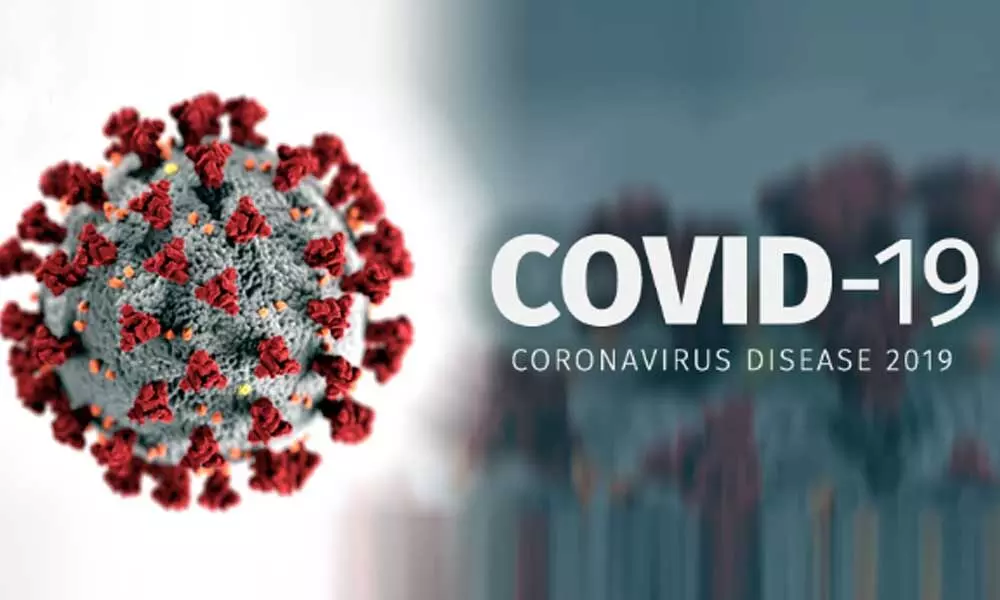Live
- 38 more Myanmarese immigrants deported to Myanmar from Manipur
- IPL 2024: Fifties from Nitish Reddy and Travis Head carry SRH to huge 201/3 against RR
- Repolling at one booth in Ajmer records 68.66 pc turnout
- J&K Police attach property of terror handler operating from Pak
- LS polls: MVA, VBA candidates in Maharashtra file nomination amid muscle-flexing
- TUC 2024: India’s campaign ends as both men's and women's teams go down in quarters
- NewsClick, others went to great lengths to paint CAA as discriminatory law targeting Muslims: Delhi Police charge sheet
- Illegal mining in Rajasthan: 4 FIRs lodged, 27 vehicles impounded
- Schools bomb threat: 125 calls received at police emergency number, says FIR
- In Gujarat, PM Modi's no-holds-barred attack on Cong, INDIA bloc over Pak's love for 'Shehzada' & 'vote jihad'
Just In
Coronavirus: Frequently Asked Questions About COVID-19


COVID-19 is a virus that started spreading in people since December 2019.
Q: What is COVID-19?
A: COVID-19 is a virus strain that started spreading in people since December 2019. The abbreviation COVID stands for Corona Virus Disease. It was first identified in Wuhan, Hubei Province, China. Health experts are closely observing the situation because nothing is known about this new virus which can cause severe illness and pneumonia in some people.
Q: What are the symptoms and how does COVID-19 spread?
A: Symptoms of COVID-19
COVID-19 symptoms are visible within two to 14 days after exposure and comprise runny nose, fever, cough, and difficulty in breathing.
COVID-19 is mainly spread through respiratory droplets; people get infected if they are within a range of six feet of distance with someone contagious and come into contact with the droplets.
Q: How long does it take for COVID-19 symptoms to appear?
A: After exposure COVID-19 symptoms may appear in as less as two days, or as long as 14 days. This is based on what has been observed earlier as the incubation period of MERS viruses. There are reports of individuals spreading the infection to others before they develop symptoms. To be vigilant, many governments are necessitating an isolation period of 14 days for people travelling back from endemic areas.
Q: Do I need to get tested for COVID-19?
A: If you feel sick with fever, cough or difficulty breathing, and have been in contact with a person infected with COVID-19 call your healthcare professional. If you have recently travelled from, live in an area with an ongoing spread of COVID-19.
Your healthcare professional, along with your state's public health department and CDC will decide if you need to be tested for COVID-19.
Q: How is COVID-19 treated?
A: At present, there is no FDA approved medication for COVID-19. People infected with COVID-19 should take proper rest, fluids and control fever, to help relieve symptoms. For severe cases, treatment should comprise care to support vital organ functions.
Q: Is there a vaccine for COVID-19?
A: Presently, there is no vaccine available for COVID-19.
Q: How can I best protect myself and patients from COVID-19?
A: Follow the steps mentioned below:
Wash your hands frequently with soap and water for a minimum 15-20 seconds. Use a hand sanitizer with a minimum of 60% alcohol, in case soap and water are not available.
Do not touch your eyes, nose and mouth with unwashed hands.
Maintain 6 feet distance and avoid close contact with sick people.
If you are ill stay home.
Cover your mouth while you cough and sneeze with a tissue, and throw it in the trash after using it.
Regular household cleaners and wipes are good enough in cleaning and disinfecting frequently touched objects and surfaces.
As it is a flu and respiratory disease season and CDC advises getting vaccinated, taking preventive actions every day to stop the germs spread, and taking flu antivirals if recommended.
Q: Will wearing a face mask protect me?
A: Masks do help to curb the infection, so it can help if someone wears who is already sick. But when it comes to COVID-19, it is not clear how effective protective masks are. Presently the CDC does not advise masks for healthy people. If you are not sick, keeping proper infection control like frequent hand washing and cough etiquette is the best protection.
Q: Can I travel internationally?
A: At this time, CDC asks to avoid unnecessary travel to China, South Korea, Iran, Italy and Japan.
If you cannot avoid travel, follow these instructions:
Avoid contact with sick people.
Avoid contact with animals, animal markets and animal products (like uncooked meat).
Wash your hands frequently with soap and water for a minimum 15-20 seconds. Use a hand sanitizer with a minimum of 60% alcohol, in case soap and water are not available.
Travellers and Older adults with underlying health issues might be at more risk.
Q: What is your advice if I have symptoms and recently travelled from China, South Korea, Iran, Italy or Japan?
A: If you have travelled from China, South Korea, Iran, Italy or Japan in the last 2 weeks and sick with fever, cough, cold, and find difficulty in breathing, you should:
Seek medical help right away. Before you visit the doctor, call beforehand and inform them about your symptoms and recent travel.
Not to contact with others.
Avoid travel if you are sick.
While coughing or sneezing cover your mouth and nose with a tissue, handkerchief or your sleeve.
Wash your hands frequently with soap and water for a minimum 15-20 seconds. Use a hand sanitizer with a minimum of 60% alcohol, in case soap and water are not available.

© 2024 Hyderabad Media House Limited/The Hans India. All rights reserved. Powered by hocalwire.com






